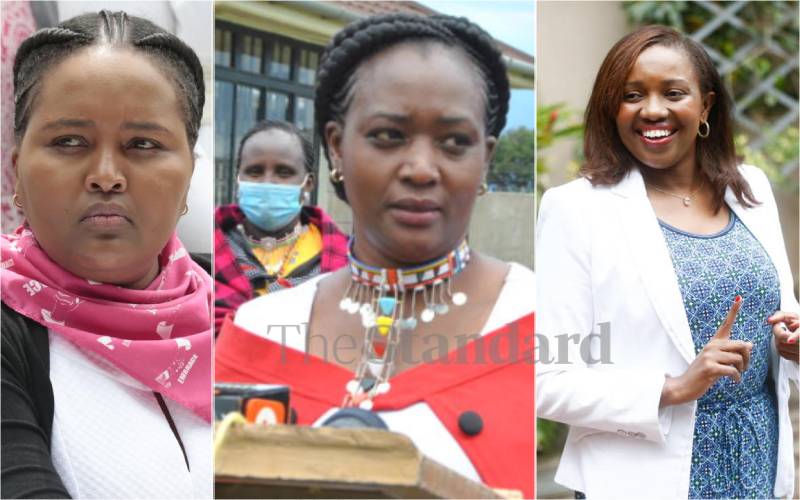×
The Standard e-Paper
Home To Bold Columnists

Naisula Lesuuda (left), Soipan Tuya and Susan Kihika. File, Standard]
Given that she is the current Samburu West MP, well educated, and served as a nominated senator, Naisula Lesuuda should be eminently qualified to run for any political office.